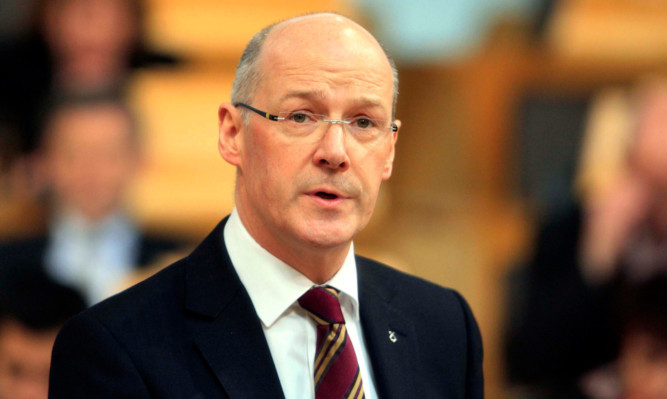Scotland needs its own independent financial watchdog to manage new devolved taxes, the Finance Secretary has said.
John Swinney criticised the UK Office for Budget Responsibility (OBR) for what he described as a series of “inexplicable” and “over-optimistic” projections.
The Perthshire North MSP told the Scottish Parliament’s Finance Committee a Scottish version of the OBR would use a different methodology from the UK body. And he attacked the maths of economists in the Scotland Office.
Mr Swinney said: “As a consequence of land and buildings transactions tax, landfill tax and the Scottish rate of income tax, we will acquire a set of responsibilities that will be about revenue raising.
“It is my view that Scotland will require an independent forecasting body that can provide independent assessment to both the government and the Parliament about what may be generated as a consequence of these taxes.”
Finance Committee convener and SNP MSP Kenneth Gibson said there has been “some concern amongst committee members about some of the OBR forecasts.”
The criticism follows a recent bulletin by the Scottish Government which said the OBR was too pessimistic about the future of North Sea oil and gas.
Mr Swinney questioned Scottish Secretary Michael Moore’s suggestion the Scotland Act “will make the Scottish Parliament responsible for raising around a third of the Scottish budget”.
He said: “The budget for which I have responsibility is in the order of £28 billion and the total tax gain from these measures will be about £4.7 billion, so I’m not sure who does the maths in the Scotland Office.”
A Scotland Office spokesman said: “The Scotland Act is the largest transfer of financial powers from London to Scotland since the creation of the UK and the Scottish Government should not talk them down or ignore their significance.
“The Scottish Government’s own figures show the taxes that will be transferred through the Scotland Act, added to the amount already raised through Council tax and business rates, raised nearly £8.8 billion.
“That represents around a third of the £28 billion budget the Finance Secretary has responsibility for.
“Of course, the actual percentage in the future will depend on the tax rates the Scottish Government chooses to set, which have not yet been made public.”
Labour’s Finance Committee member, Michael McMahon, said: “It’s only right to be slightly suspicious that as soon as the OBR put out figures which disagree with the SNP, John Swinney decides to set up his own budget review group.”
Scottish Liberal Democrat leader Willie Rennie added: “John Swinney doesn’t like the answers he’s been given on the economy, so he’s cooking the books and looking to appoint his own chef.”
